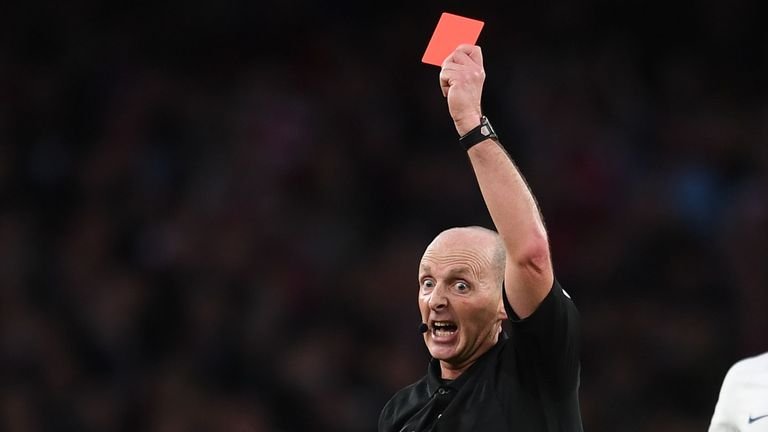How much is the fine for a red card in the Premier League?
A red card can be a game-changer, not just for the players and teams involved, but also financially. The Premier League, as one of the most prestigious football leagues globally, has its own set of regulations and penalties for misconduct on the field. Among these penalties, fines for red cards carry significant financial implications for both the players and their clubs.
Referees give 0.17 red cards a game on average this season. The average hides a wide variation, the top referee for red cards is Michael Oliver at 0.27 per game. If you’re a referee and would like to know how many cards you’re giving each season, download REFSIX for free. We track the cards so you can focus on the decisions.
A red card, typically issued for serious foul play, violent conduct, or denying an obvious goal-scoring opportunity, not only affects the immediate outcome of a match but can also have repercussions beyond the 90 minutes of play. The immediate consequence is the player's expulsion from the game and a one-match suspension.
In the Premier League, fines for red cards are not standardised across the board. Instead, they are determined on a case-by-case basis, taking into account various factors such as the severity of the offence, any previous disciplinary record, and the player's conduct before and after the incident.
Red card fine
The exact amount of the fine imposed for a red card can vary widely. However, it's reported that fines for a straight red card in the Premier League can range from £2,500 to £12,500, depending on the severity of the offence and other mitigating circumstances. This amount may seem substantial to the average person, but for Premier League players, whose weekly wages often reach astronomical figures, it may not serve as a significant deterrent.
Beyond the individual player, the financial impact of a red card extends to the player's club. With key players sidelined due to suspensions resulting from red cards, teams may find themselves at a disadvantage in subsequent matches, potentially leading to dropped points and decreased revenue, especially in the highly competitive environment of the Premier League.
Moreover, the reputation of both the player and the club can suffer from incidents resulting in red cards, affecting sponsorship deals, fan support, and overall brand image. In some cases, repeated disciplinary issues can even lead to contract termination or difficulty in securing future opportunities.
To mitigate the financial and reputational risks associated with red cards, clubs often invest in disciplinary measures and player education programs aimed at promoting fair play and responsible conduct on the field. Additionally, leagues like the Premier League continuously review and update their disciplinary regulations to ensure that they remain effective in maintaining the integrity of the game.
Conclusion
While the immediate consequences of a red card in the Premier League are evident on the field, the financial ramifications extend far beyond the match itself. With fines imposed on players and potential losses for their clubs, the financial impact underscores the importance of discipline and sportsmanship in professional football. As the stakes continue to rise in modern football, the need for fair play and responsible behaviour becomes increasingly crucial, both for the players and the integrity of the game.
If you’re responsible for handing out red cards regularly, REFSIX makes life much easier. We take away the stress of admin in the middle, so you can concentrate on the big decisions. Download our app today for free. Includes advanced timers, performance tracking and career trends.



